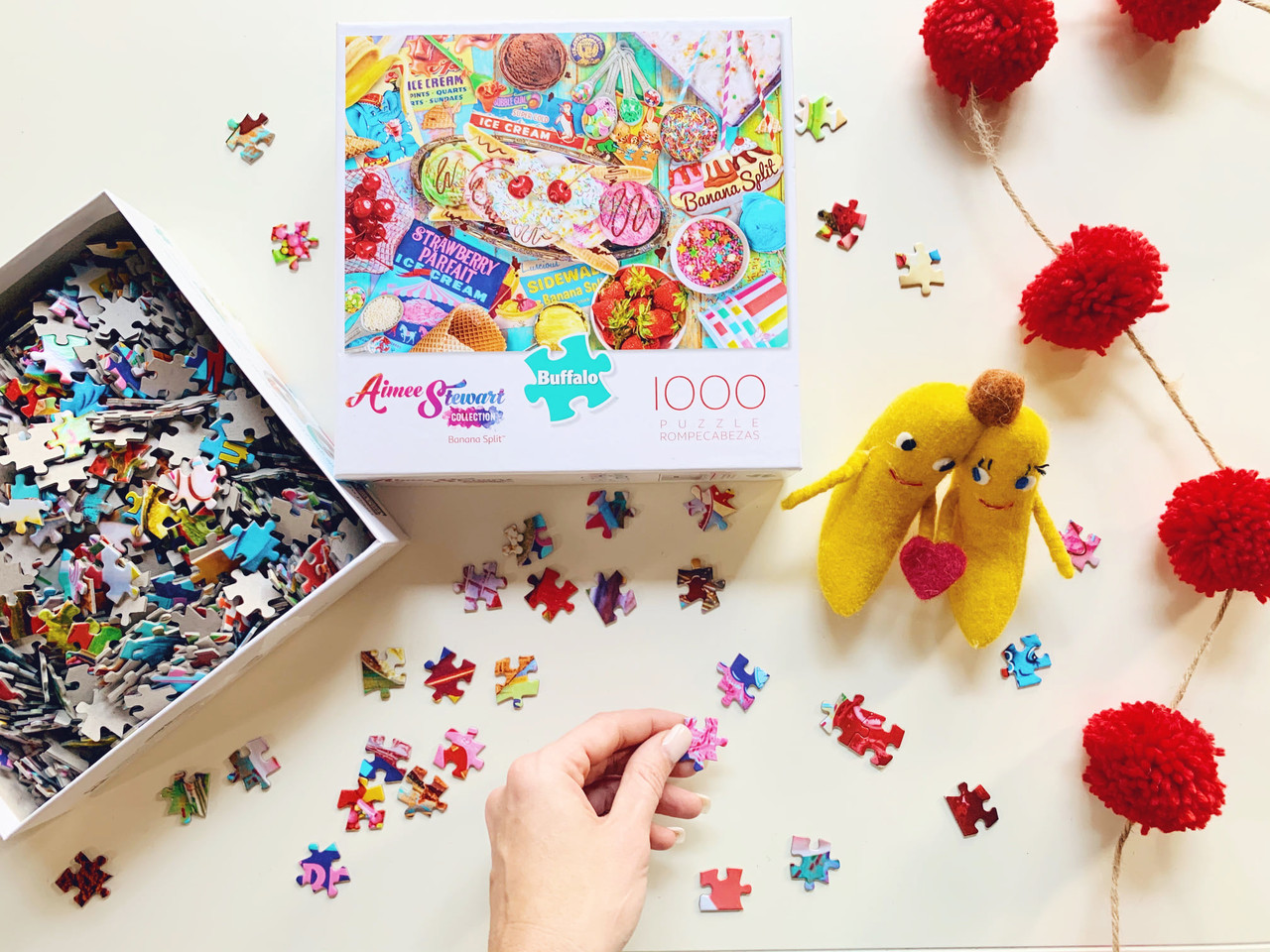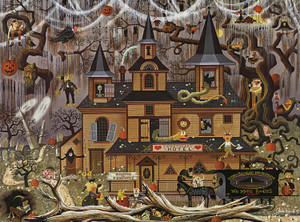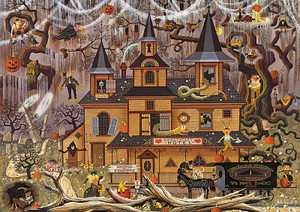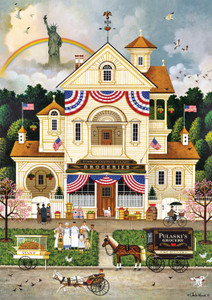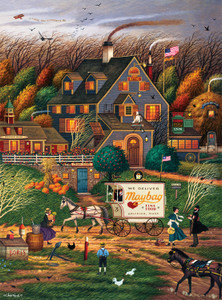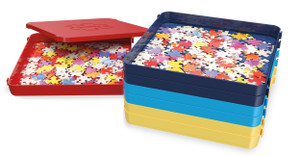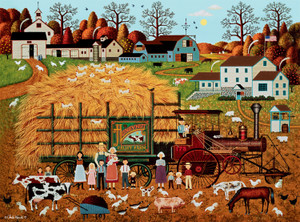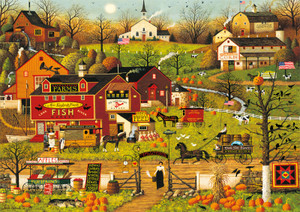Posted by Buffalo Games on May 24th 2022
Which Skills Are Enhanced in Assembling Jigsaw Puzzles?
Jigsaw puzzles aren’t just for kids. In fact, while they can indeed be great for kids, they’re even better for adults. After all, it’s not just kids who could use a little practice with fine motor skills, strategic thinking, problem-solving, and so on.
As we mature, the law of “use it or lose it” starts to develop its double edge, and we realize that spending hours streaming shows and slowly declining in front of the TV is no way to live. Puzzles are tons of fun!
- Puzzling can be a social opportunity if we include others in the fun
- An enjoyable puzzle can improve your mood
- Meditating on the solution can lower your stress
- Daily brain exercise can delay dementia and Alzheimer’s disease
Since kids love it so much, it’s just about the perfect way for parents and grandparents to connect with the next generation.
Here are a few thought-provoking considerations about the benefits of puzzling:
Jigsaw Puzzles for Adults: Fun and Educational
If you’ve never put together a puzzle, do yourself a favor: don’t sit down at the table to solve a 2000-piece puzzle on your first try.
Like anything in life, it’s best to take on projects you can manage, even if they are a little challenging. A good goal would be to start with perhaps a few 300-piece puzzles until you get your feet wet. It’s a process, and you learn as you go. Now that the preliminary advice and disclosures are out of the way, on to the benefits.
Puzzling: A Mindfield of Benefits
Forgive the punny heading, but it’s true. Putting puzzles together is hugely beneficial. Just check out all of the ways it builds skill:
Strategic Thinking
An experienced puzzler won’t just start chucking things together on the table willy-nilly — first, they get organized. Usually, you start with the border pieces before you go on to fill out the middle.
After a while, you realize it helps to organize pieces by color or stand the box up so that you can use the cover art as a reference for where a piece is likely to fit. This mental workout is how puzzles help develop basic problem-solving skills and abstract, critical thinking.
Fine Motor Skills
It’s a fact that working on a puzzle for a while helps to develop, enhance and even retain fine motor skills. And if you do a little puzzling every day, or a few times a week, you’ll go a long way toward training your hands to do precisely what your mind is telling them.
In a world where what we’re doing with our hands is undergoing a massive technology-driven shift (from handwriting to smartphone typing, for instance), perhaps this skill is even more important to develop and cultivate.
Along with this benefit comes improved visual-spatial reasoning, which goes hand-in-glove with fine motor skills. Together they produce useful skills that come in “handy,” often when you least expect to need them.
Better Living Through Puzzling
If you spend even a modest amount of time working on jigsaw puzzles every week, you may find your mood improving and your stress levels dropping.
That’s because working on a puzzle is a calming task that engages the mind and the hands in ways very few other tasks do. Quite frankly, it’s fun to creatively discover the ways the different pieces come together to produce the goal image you’re guided by on the box top.
This low-key stimulation is just what’s needed to fend off the onset of dementia and Alzheimer’s in older puzzlers and to develop better, more practical smarts (and increasing IQ) in puzzlers of all ages. You can also count on the exercise to improve your memory, which is a benefit anyone would say yes to.
Increased Attention to Detail
A 2000-piece puzzle will stretch your attention to detail like perhaps nothing else will. It’s not just the size; it’s the sheer volume of pieces and shapes, not to mention the subtle details of color and shading that act as clues for fitting.
Puzzlers that have been going at it for a while enjoy this kind of challenge, which means that they have developed these skills along the way. Puzzles do indeed have many benefits.
Exercising Both Sides of Your Brain
One reason jigsaw puzzles are so awesome is that, while the human brain is divided into two primary areas of specialization, puzzling stimulates both. Classic right brain responsibilities include:
- Visual awareness
- Imagination
- Spatial recognition
- 3D forms
- Emotion
- Left hand control
And Classic left-brain responsibilities include:
- Language and number skills
- Reasoning
- Analytical and logical skills
- Spoken language
- Right hand control
The all-too-human tendency of finding a rut and sinking into it (otherwise more politely referred to as the fact that humans are creatures of habit) means that most adults are essentially out of balance, becoming either right- or left-brain dominant.
It’s not that these predilections are all bad, but any exercise that stretches us toward an ability to balance things in our lives will be extremely helpful in the end. The development of an even temperament is yet another reason why jigsaw puzzles for adults are so beneficial.
Puzzles challenge the whole human mind. The right side must engage with visual and spatial recognition, using imagination to gauge whether a certain piece is likely to fit in a given location, and the left side must use reason and logic to analyze these possibilities, synthesizing them into a choice and a try.
Both sides have to work together, just as your right and left hands must work together, to solve the jigsaw puzzles you take on piece by piece.
The science behind it is actually really fun and is an encouragement to parents and grandparents, especially, to get away from more screen time in favor of an activity that has real benefits. Fewer smartphone zombies and more puzzlers, please!
Solved!
Whether you’re new to jigsaw puzzles or experienced and ready for a 2000-piece puzzle, it’s plain to see that puzzling isn’t just fun — it actually helps your brain pump iron a little. Solving puzzles is a great way to stay young if you’re old, and if you’re young, to grow into a fine adult.
